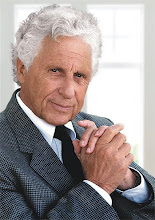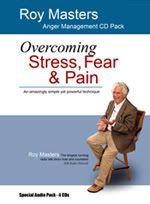OCD Help Part 2: Obsessive Compulsive Disorder Self Help

Podcast Here
(Clip from episode: K4535)
This podcast is brought to you by the Foundation of Human Understanding: http://www.fhu.com
Can people with Obsessive Compulsive Disorder cure themselves of their behavior? In this free podcast, radio counselor Roy Masters explores the possibility of overcoming all the effects of OCD. This is Part 2 in a podcast series on "OCD Help." Part 1 can be found at http://roymasters.blogspot.com.
Chris has been dealing with OCD for over 10 years. Roy explains that obsessive compulsive behavior and thoughts are usually preceded by depression and guilt. OCD, in effect, is a form of psychological projection. While some people project their guilt onto other people, those suffering from OCD project guilt onto an idea that can then be obsessed over. By getting resentfully tied up with this idea or repetitive action, the obsessive compulsive mind is distracted away from the pain that guilt causes their conscience.
Would you like to discover true self help, and be free of your obsessive compulsive thoughts for good? Listen to this podcast!
Quotes regarding obsessive compulsive behavior from Roy Masters’ books:
“Even when you believe in the worst that is about to befall you-and you do so compulsively-you cannot make yourself disbelieve it. After all, you have become a creature who relies on proof, not faith, and all you can see is proof staring you in the face. Thanks to your misguided faith, you can believe only as the result of being deceived, so that even when you believe positively that all will be well, it's a lie, and you know it, but you have to cling to it.”
- Beyond the Known
“Whenever you think through a problem in the conventional, subjective way—by trying to analyze it and figure out a solution—that thinking process acts in the same way as did the temptation that caused your problem, first by upsetting you and then by conditioning you to be wrong. By thinking about your problems, you tighten their hold over you; you become a part of the very problem you are trying to solve. Unless you yearn to know what is right and to be objective, thinking becomes an escape that triggers irrational and compulsive behavior and a morbid feeling of hopelessness. The belief that thinking about your problems can solve them is the underlying principle behind many forms of compulsion. Only when you realize the truth about your problems, not when you think about them, will these compulsions be eliminated. All you ever accomplish by taking thought is to stir yourself up needlessly; you achieve nothing positive.”
- How to Conquer Negative Emotions
“Hypnosis affects your ordinary, conscious thinking, because your soul comes out of its compulsive experiences with all sorts of guilt and anxiety. Stained with sin, your soul now consciously repels truth, both in the spirit and in the thinking about it; it reaches back, beyond the hypnotic state, for the means to persuade other people to give you the delusion of reality you need if you are to preserve your prideful nature.”
- Beyond the Known
“The meditation exercise will never become a habit. By choosing to do this exercise each morning you choose rightly for that day. This choice frees you from compulsive patterned ideas and actions. Failure to do the exercise constitutes choosing the old ways again.”
- How Your Mind Can Keep You Well
“The soul, once quieted, stripped of its rationale, illicit desires, and compulsive mind-movement, comes face to face with the truth about its pride and weakness.”
- How Your Mind Can Keep You Well
LISTEN:
-----
If you suffer deeply from the effects of stress, fear or pain, we recommend the Overcoming Stress, Fear, and Pain Pack.













